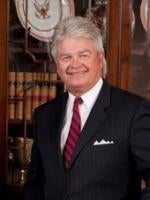Beginning in 2020 and throughout the COVID-19 pandemic, a wide array of relief was made available to cafeteria plans and flexible spending account (FSA) plans under the CARES Act, ARPA, and other legislative acts, notices, and announcements. This relief, which included carryover increases, grace period extensions, expanded election changes, and additions to reimbursable expenses, was optional to plan sponsors who could elect what relief, if any, would be made available to plan participants operationally under their plans.
If a plan sponsor implemented any of the relief options, plan amendments reflecting how they were implemented are generally required to be made by the end of the calendar year following the plan year that the change relates to. Therefore, for relief options implemented for calendar year plans for 2020, an amendment must be adopted no later than December 31, 2021. Plan sponsors who implemented any of the relief options described below should be in communication with their plan document providers to ensure that any necessary amendments are adopted before the 2021 plan year-end.
We have briefly summarized the available relief options below.
Mid-Year Election Changes
-
During 2020 and 2021, cafeteria plans could permit one or more of the following prospective election changes for any reason:
-
New elections for employer-sponsored health coverage by employees who initially declined coverage;
-
Elections to enroll in different health coverage sponsored by the same employer (including a change from self-only to family coverage);
-
or Revocation of existing elections for employer-sponsored health coverage, with a written attestation that the employee is or immediately will be enrolled in other “comprehensive” health coverage not sponsored by the employer.
-
Additionally, during 2021, cafeteria plans could allow one or more of the prospective election changes listed above for employer-sponsored dental or vision coverage for any reason.
-
During 2020 and 2021, cafeteria plans could permit prospective changes to Health or Dependent Care FSA elections (including revocations, increases, decreases, or new elections) for any reason.
Other FSA-Related Relief
-
For plan years ending in 2020 and 2021, unused balances at year end in Health FSAs and Dependent Care FSAs could be carried over (not subject to the normal $550 limit) to the following plan year or could be available for an extended (up to 12 months) grace period.
-
During 2020 or 2021, plan sponsors could permit employees who ceased participation in Heath FSAs to be reimbursed from unused benefits or contributions through the end of the plan year in which participation ceased, including any grace period.
-
Dependent care FSAs could extend the maximum age of a covered child from 12 to 13 when reimbursing dependent care expenses during the last plan year with a regular enrollment period ending on or before January 31, 2020, and could allow employees with unused balances for that plan year to apply this rule to claims for reimbursement of the unused balance in the following plan year, until the child turns 14.
-
For the 2021 taxable year, the maximum federal dependent care FSA limit was increased from $5,000 to $10,500 (for single filers and married filing jointly) and from $2,500 to $5,250 (for married filing single). Note – If a plan sponsor implemented this increased limit for 2021, an amendment is required by December 31, 2021 (not December 31, 2022).
As a reminder, the CARES Act also expanded eligible reimbursable expenses under a Health FSA as listed below, effective January 1, 2020. Plan sponsors who have not previously amended their Health FSA should consider including these changes in any amendment addressing the above relief:
-
The prescription requirement was removed for over-the-counter drug reimbursements under Health FSAs, Health Reimbursement Accounts (HRAs), and Health Savings Accounts (HSAs).
-
Menstrual care products were permitted to qualify as medical care for purposes of reimbursement from Health FSAs, HRAs, or tax-free distributions from HSAs.






 />i
/>i

